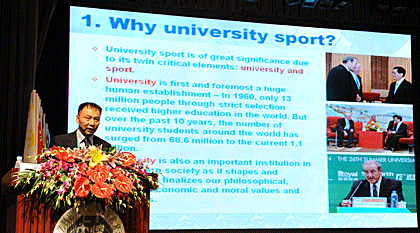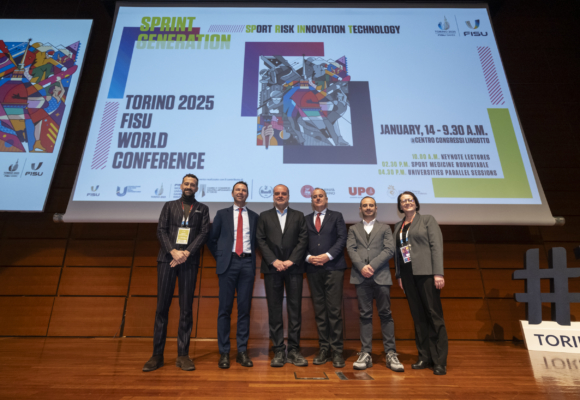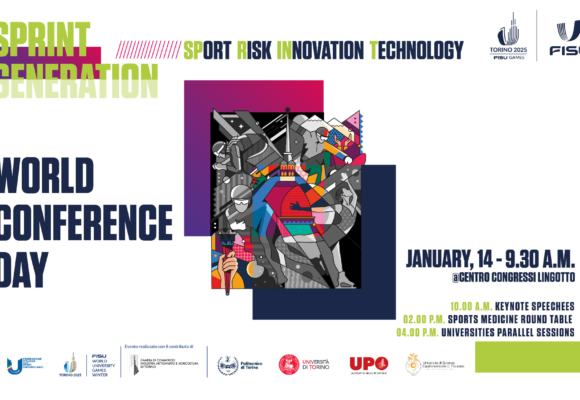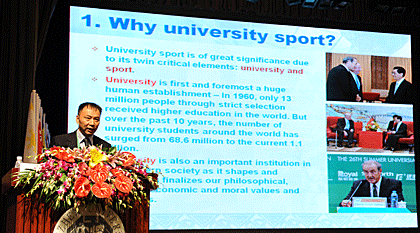 Prof Zhong Bingshu: “New approaches to University Physical Education and Sport in China in the 21st century”
Prof Zhong Bingshu: “New approaches to University Physical Education and Sport in China in the 21st century”
The third day of FISU conference in Shenzhen University, started with the summary on oral presentation of 5 sections from the second day. Then 2 keynotes speakers by Professor Nico SPERLE, member of CESU, Director of Sports Department at the RWTH Aachen University of Technology and Peter Lynen, Chairman of Health Project Manager at the RWTH Aachen University of Technology presented “Health Prevention and University Sport”.
They stated that health is a major theme for University Sport. It gives the chance to involve new target groups, to implement new programs, to increase the program diversity and to raise the reputation as health competence centre. Low impact programs, individual program design, small groups and peer group classes are necessary to involve sport drop-outs and sport abstinent in University sport program.
Interviews about participant wishes and needs in advance, during the program and at the end will be as helpful as going to the people and doing the physical activity at the working or study place. It might lead this group to a self-responsible healthy life style with physical activity in their daily life. Lynen/Sperle introduced the German “Pausenexpress” (an active, 15 minutes lasting lunch break program at the working place) as an interesting model for inactive people which could be implemented at Universities worldwide. This model which was already awarded several times inGermanyis meanwhile running at over 30 Universities inGermany. Conference participants were impressed and got aware about the excellent chance the program has for their local University.
Next speaker, Professor ZHONG Bingshu, President of Capital Institute of Physical Education, also President of FUSC-China, presented “New approaches to University physical Education and Sport in China in the 21st century”. He gave an overview about physical education classes in China which will be increasingly diversified in terms of their teaching objectives, content and class organization. For the sport majors, most of the higher education institutions offer degree in “Physical Education”, “Sports Economyand Sports Media”, “Physical Recovery
and Health”. For the research platform, riding the Olympic wave, research on Sport Science and the Olympic has taken off. About the volunteer service, Beijing Olympic Games in 2008 was the enlightenment of citizenship and volunteer service, they learned to solve the problems and improved their knowledge, skills and capacity in the service, for the university, volunteers are a window to the outside would that shows the quality of university. The presenter also makes a conclusion that university sports encourage both individualism and community building, it promotes better knowledge and understanding of the society as well as offers business opportunities for professional and even commercial organization.
Source: Mrs Samahito Supitr, CESU Member
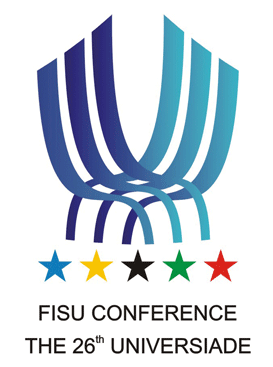
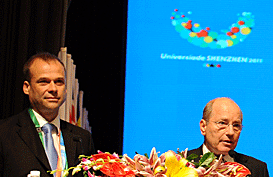 Peter Lynen (left) and Nico Sperle: “Health Prevention and University Sport”
Peter Lynen (left) and Nico Sperle: “Health Prevention and University Sport”
